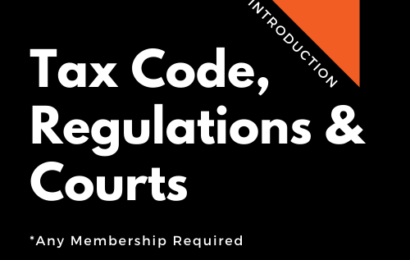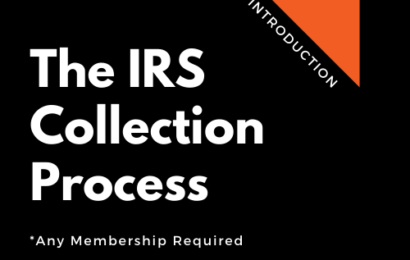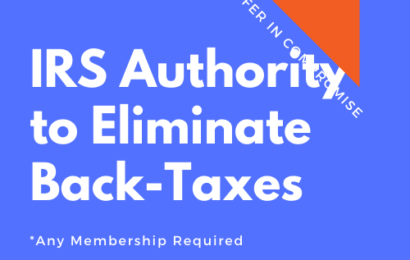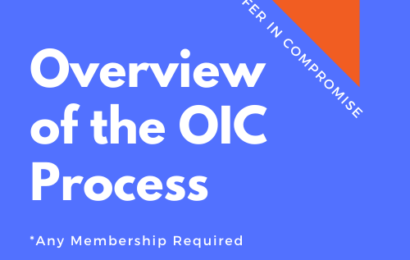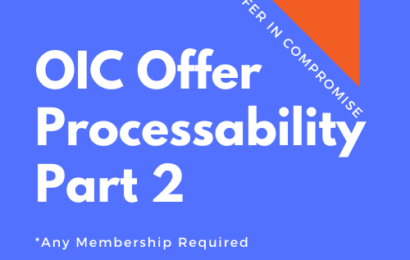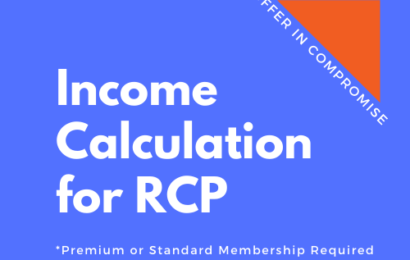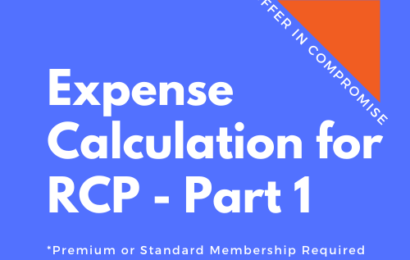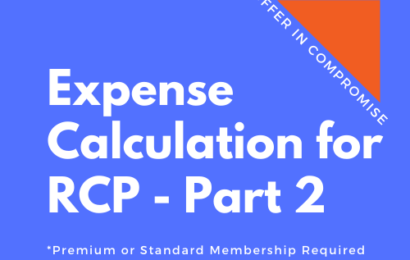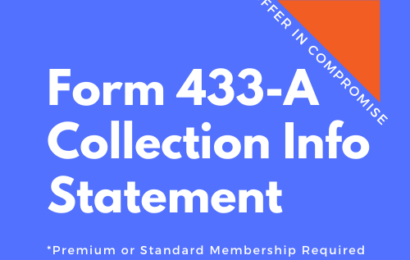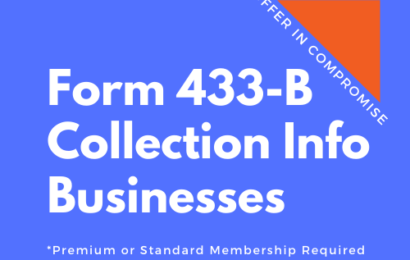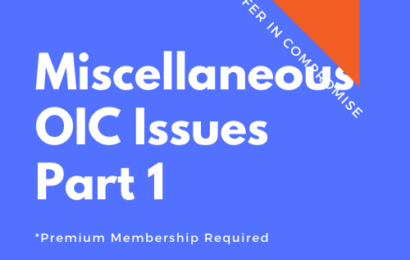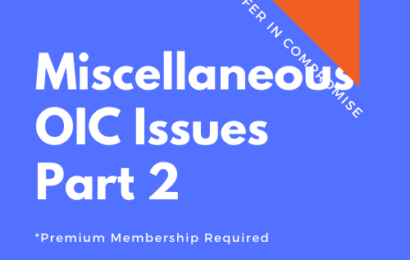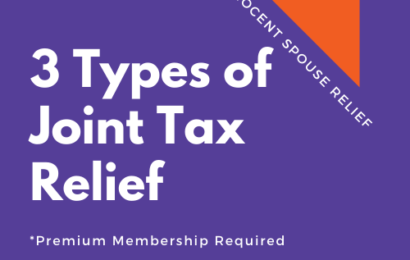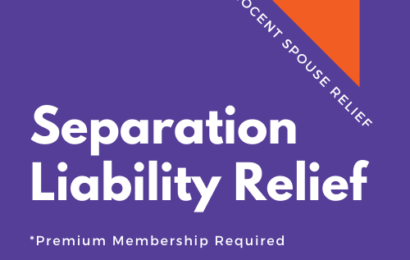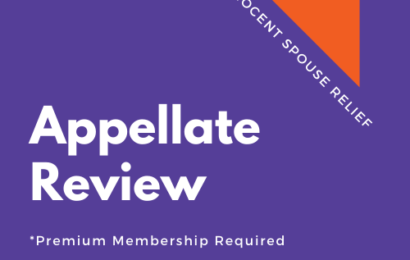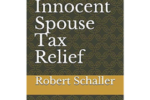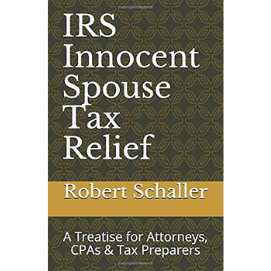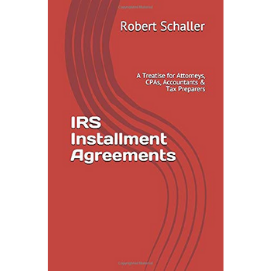[layerslider_vc id=”2″]
Over 20,640 Free Tutorial
Eimply dummy text of the printing inavailable industry.
Skilled 10,640 Lecturer
Eimply dummy text of the printing inavailable industry.
Over 1000 Scholarship
Eimply dummy text of the printing inavailable industry.
Over 5,640 Book Store
Eimply dummy text of the printing inavailable industry.
Our Top Courses
Bmply dummy text of the printing and typesetting indust Lorem Ipsum has been theitry's snce simply dummy text of the printing.Phasellus enim libero, blandit vel sapien vita their. Lorem ipsum dolor sit amet, consectetur adipiscino eiusmod tempor incididply dummy text of the printing.
All Courses "Terminating" a Pending Offer "Withdrawing" a Pending Offer Accepting an Offer Appellate Review Collateral Agreements Collection Process Collection Statute Expiration Date Equitable Relief Form 8857 Guaranteed Installment Agreement Innocent Spouse Relief Installment Agreements Levy Modifying Installment Agreement Non-Requesting Spouse Offer in Compromise Offer Processability OIC Scholar Power of Attorney Power of Attorney and Third Party Authorizations Premature and Untimely Claims RCP Reasonable Collection Potential Refund Claims Separation of Liability Relief Streamlined Installment Agreements Terminating Installment Agreement Third Party Authorizations
OIC Scholar Certificate Exam – 650 Questions
Offer in Compromise Scholar Certificate Exam – 650 Questions. So, do you have what it takes to pass the 650-question exam and earn the Offer in Compromise Scholar certificate from National Offer in Compromise Academy? Start down the path toward being recognized by your peers and prospective clients as a…
Intro 101: Welcome to National OIC Academy
Welcome to the National Offer in Compromise Academy. Who Should Take These Courses? https://youtu.be/GLpJ7IM2jTg Tax professionals across the nation are adding an Offer in Compromise (OIC) practice area to their list of services to attract new clients, more fully serve the needs of their existing clients, and increase their profits. …
Intro 102: Statutes, Regulations, Courts & IRM
Statutes, Regulations, Courts & Internal Revenue Manual. Key to understanding tax solutions to IRS back-taxes is an understanding of the interplay between federal statutes, IRS regulations, court rulings, internal revenue manual, revenue rulings, revenue procedures, IRS announcements, and IRS Notices. This course separately examines each source of tax law. https://youtu.be/hoczX0oVBzI
Intro 103: Understanding the IRS Collection Process
Understanding the IRS Collection Process. https://youtu.be/qn3hMR9pjOk This course provides a brief overview of the IRS collection process. It does not provide strategies or exceptions to the rule. Later courses provide a greater explanation of these issues. The collection process starts after a taxpayer files a tax return without full payment…
OIC 101: IRS Authority to Eliminate Back-Taxes
IRS’ Authority, Motivation & Basis to Eliminate Back-Taxes. https://youtu.be/rwKeaiLO9xY An Offer in Compromise is an agreement between a taxpayer and the IRS that settles a tax liability for payment of less than the full amount owed. IRM § 5.8.1.2.1 (09-23-2008); Adamowicz v. US, 08-888C, Pg. 5 (D.C. Ct. Fed. Cl. 11/21/2011). …
OIC 102: Overview of the OIC Application Process
Overview of the Offer in Compromise Application Process. https://youtu.be/2FIA2Rv94cY This course focuses on a taxpayer’s ability to eliminate past-due federal income tax liability by establishing a repayment plan through the IRS “Offer in Compromise” program, which is commonly known as the “Fresh Start Initiative.” An overview is presented to help navigate…
OIC 103: Who Submits the OIC Application?
Who is the Proper Party to Submit the OIC Application? https://youtu.be/sW6KfFiK8wo Before filing a formal Offer in Compromise application, a taxpayer may request a meeting in the IRS office which would have jurisdiction over the offer to explore the possibility of compromising unpaid tax liability. 26 C.F.R. § 601.203(d). The Offer…
OIC 104: Payment Issues with an OIC
Payment Issues with an Offer in Compromise. The Offer in Compromise application must be accompanied by two separate payments: a $205 application fee, and a down-payment of either a Lump-Sum Payment Offer payment or a Periodic Payment Offer payment. As discussed below, two exceptions are made for the payment rule:…
OIC 105: Is the OIC Offer “Processable?” – Part 1
Is the OIC Offer Submitted “Processable?” – Part 1. https://youtu.be/RGivexRiG_0 The IRS receives the taxpayer’s offer. The first step it takes is to determine if the submitted offer is “processable.” This issue is divided into two separate courses. Part 1 addresses issue relating to the taxpayer’s ability to fully pay…
OIC 106: Is the OIC Offer “Processable?” – Part 2
Is the OIC Offer Submitted “Processable?” – Part 2. https://youtu.be/RGivexRiG_0 The IRS receives the taxpayer’s offer. The first step it takes is to determine if the submitted offer is “processable.” This issue is divided into two separate courses. Part 1 addresses issue relating to the taxpayer’s ability to fully pay…
OIC 107: Offer Amount Formula
Offer in Compromise Offer Amount Formula. https://youtu.be/U4zEn2bHWC0 The three types of Offer in Compromise are as follows: (a) compromise based on “doubt as to collectibility”; (b) compromise based on “doubt as to liability”; and (c) compromise that promotes effective tax administration. 26 C.F.R. § 301.7122-1(b); Johnson v. Commission of Internal…
OIC 108: Asset Valuation for RCP – Part 1
Asset Component of RCP Formulas – Part 1. https://youtu.be/j2pMb1-OM-4 This Course focuses on Part 1 of the “asset” component of the RCP formulas or “,” including identifying and valuing the taxpayer’s assets. The “asset” component of the RCP formulas represents the realizable net equity in the taxpayer’s assets. The realizable…
OIC 109: Asset Valuation for RCP – Part 2
Asset Component of RCP Formulas – Part 2. https://youtu.be/j2pMb1-OM-4 This Course focuses on Part 2 of the “asset” component of the RCP formulas or “,” including identifying and valuing the taxpayer’s assets. The “asset” component of the RCP formulas represents the realizable net equity in the taxpayer’s assets. The realizable…
OIC 110: Income Calculation for RCP
Income Component of RCP Formulas. https://youtu.be/DV9QOoOxaAQ This course focuses on the “gross monthly income” component of the “Future Income” calculation for the RCP formulas. This focus includes identifying and valuing all sources of income. Gross monthly income is defined as all income from whatever source derived, including (but not limited…
OIC 111: Expense Calculation for RCP, Part 1
Expense Component of RCP Formulas – Part 1. https://youtu.be/OJCnBlwUdu8 This course focuses on Part 1 of the “allowable monthly expenses” component of the “Future Income” calculation for the RCP formulas. The allowable monthly expense analysis determines the “allowability” of a taxpayer’s monthly expenses. The next course, Part 2, focuses on…
OIC 112: Expense Calculation for RCP, Part 2
Expense Component of RCP Formulas – Part 2. https://youtu.be/OJCnBlwUdu8 This course focuses on Part 2 of the “allowable monthly expenses” component of the “Future Income” calculation for the RCP formulas. The allowable monthly expense analysis determines the “allowability” of a taxpayer’s monthly expenses. The prior course, Part 1, focused on…
OIC 113: Form 656, Offer in Compromise
Form 656, Offer in Compromise. An Offer in Compromise is an agreement between a taxpayer and the IRS that settles a tax liability for payment of less than the full amount owed. IRM § 5.8.1.2.1 (09-23-2008); Adamowicz v. US, 08-888C, Pg. 5 (D.C. Ct. Fed. Cl. 11/21/2011) (Offer in Compromise) and 26…
OIC 114: Form 433-A (OIC): Collection Information Statement – Individuals
Form 433-A (OIC): Collection Information Statement for Wage Earners and Self-Employed Individuals. Form 433 must be included with the Offer in Compromise application packet when the grounds for compromise are based on doubt as to collectibility or effective tax administration. No Form 433 is required for an offer to compromise based…
OIC 115: Form 433-B (OIC): Collection Information Statement – Businesses
Form 433-B (OIC): Collection Information Statement for Businesses. Form 433-B (OIC), Collection Information Statement for Businesses must be included with certain Offer in Compromise application packets when the grounds for compromise are based on doubt as to collectibility or effective tax administration. No Form 433-B (OIC) is required for an…
OIC 116: Collateral Agreements
Collateral Agreements. Treasury regulation 26 C.F.R. § 301.7122-1(e)(2) states: “As additional consideration for the acceptance of an offer to compromise, the IRS may request that taxpayer enter into any collateral agreement or post any security which is deemed necessary for the protection of the interests of the United States.” 26…
OIC 117: Taxpayer’s Obligations During Offer Investigation
Taxpayer’s Obligations During Offer Investigation. The IRS spends many months investigating a “processable” Offer In Compromise application. So, a taxpayer must be patient while the offer is pending. Patience does not mean inaction. A taxpayer has obligations that must be satisfied during the IRS offer investigation. https://youtu.be/cUswCOppi4w
OIC 118: Terminating a Pending Offer
IRS Terminating a Pending Offer. An Offer in Compromise application can be “terminated” while the IRS is considering the application. A “termination” is defined as a closing of the Offer in Compromise application review process due to the death of the taxpayer. IRM § 5.8.7.1.6(1) (12-20-2018). The IRS must terminate its…
OIC 119: Withdrawing a Pending Offer
Taxpayer “Withdrawing” a Pending Offer. An Offer in Compromise application can be “withdrawn” by the taxpayer while the IRS is considering the application. The withdrawal of an application closes the Offer in Compromise application review process. There are two kinds of withdrawn offers: voluntary and mandatory. IRM § 5.8.7.4(1) (09-23-2008).…
OIC 120: Returning an Offer
IRS Returning the Offer. The IRS can “return” both a processable and an unprocessable Offer in Compromise application to a taxpayer without “accepting” or “rejecting” the offer. The IRS’s return of an application closes the Offer in Compromise application review process. A “return” is defined as a non-acceptance recommendation that…
OIC 121: Rejecting a Pending Offer
“Rejecting” a Pending Offer. The IRS can “reject” a processable Offer in Compromise application for many reasons. The IRS defines “reject” as a non-acceptance recommendation of any OIC offer that includes appellate rights. IRM § 5.8.7.1.6(1) (12-20-2018). The rejection of an application closes the Offer in Compromise application review process. …
OIC 122: Accepting a Pending Offer
“Accepting” a Pending Offer by the IRS. The decision whether to “accept” an offer to compromise is within the IRS’ discretion and must be based upon consideration of all the facts and circumstances. 26 C.F.R. § 301.7122-1(c)(1); Johnson v. Commission of Internal Revenue, 136 T.C. 475, 485 (2011); Christopher Cross, Inc.…
OIC 123: Taxpayer’s Duties Post-Acceptance
Taxpayer’s Duties Post-Acceptance. A Taxpayer has cause to celebrate the IRS’ decision to accept his/her offer to compromise the back-taxes. But the taxpayer must stay vigilant and in full compliance with all terms of the Form 656 offer terms for the 5-year period beginning with the date the offer was…
OIC 124: Default After Acceptance
Default After Acceptance. A taxpayer must honor all terms set forth in the Form 656 agreement. Form 656, Section 7, https://www.irs.gov/pub/irs-pdf/f656b.pdf. In particular, a taxpayer must comply with all filing and payment obligations under the Tax Code for a period of 5 years after the offer is accepted. Form 656,…
OIC 125: Tax Refunds
Tax Refunds. The IRS keeps any tax refund emanating from overpayment of any tax or other liability due through the calendar year the IRS accepts the taxpayer’s offer. Form 656, Section 7(e), https://www.irs.gov/pub/irs-pdf/f656b.pdf. The IRS will keep any refund, including interest, for tax periods extending through the calendar year that the IRS…
OIC 126: Appellate Rights
Appellate Rights Relating to OICs. This course discusses appellate rights in the Offer in Compromise context. Appellate rights are better understood when segregated into three issues: (1) appellate rights relating to a pre-rejection “independent administrative review”; (2) appellate rights following a collection due process determination (i.e. offer made as part of…
OIC 127: Levy Affected by OIC
Levy Affected by OIC. Taxpayers are not protected from the IRS collection apparatus while contemplating or completing an Offer in Compromise application. Similarly, taxpayers are not automatically protected from levy by submitting an Offer in Compromise application. “Submission of an Offer in Compromise does not automatically stay collection of an…
OIC 128: OIC Affects an Installment Agreement
Installment Agreements Affected by OIC. Is a taxpayer required to continue making installment agreement payments if the taxpayer plans on filing an Offer in Compromise? Yes, is the simple answer because the Offer in Compromise application has not yet been submitted and has not yet been approved for processing by the IRS. …
OIC 129: Trust Fund & Trust Fund Recovery Penalty
Trust Fund & Trust Fund Recovery Penalty. Federal law requires employers to withhold certain taxes from their employees’ pay. Each time the employer pays wages, the employer must withhold – or deduct from the employees’ pay – certain amounts for federal income tax, Social Security tax, and Medicare tax. The…
OIC 130: Criminal Restitution Issues
Criminal Restitution Issues. Taxpayers may submit an Offer in Compromise application to resolve criminal penalties. The Secretary of the Treasury may compromise any criminal liability arising under the internal revenue laws prior to the reference to the Department of Justice for prosecution or defense. 26 U.S.C. § 7122(a). An agreement…
OIC 131: Miscellaneous OIC Issues – Part 1
Miscellaneous Offer in Compromise Issues – Part 1. Attorneys are authorized to represent taxpayers before the IRS on collection matters, including an Offer in Compromise. IRM § 5.8.4.25(6) (05-10-2013). Taxpayers have a set of fundamental rights they should be aware of when dealing with the IRS. For more information, go…
OIC 132: Miscellaneous OIC Issues – Part 2
Miscellaneous Offer in Compromise Issues – Part 2. Attorneys are authorized to represent taxpayers before the IRS on collection matters, including an Offer in Compromise. IRM § 5.8.4.25(6) (05-10-2013). Taxpayers have a set of fundamental rights they should be aware of when dealing with the IRS. For more information, go…
IA 101: Routine Installment Agreements
Routine Installment Agreements. The Federal government raises money to fund governmental operations through tax revenues collected by the IRS. Taxpayers are required to voluntarily comply with the Tax Code, including filing returns and paying taxes. The IRS wants full payment of the tax liability ASAP. The IRS encourages taxpayers to pay…
IA 102: Levy Protection with Installment Agreements
Levy Protection Afforded by Installment Agreements. Installment agreements are employed to shield taxpayers from the IRS’ dreaded levy apparatus while paying back-taxes through a systematic repayment plan. The IRS’ most lethal collection weapon is the feared LEVY. The IRS uses the levy as a sword against taxpayers by seizing taxpayers’ money…
IA 103: Guaranteed Installment Agreements
Guaranteed Installment Agreement. The “Guaranteed” installment agreement program is one of the IRS’ special installment agreement programs. Other special programs with their own specific criteria discussed elsewhere include “Streamlined” installment agreements, “In-Business Trust Fund Express” installment agreements, and “Partial Payment” installment agreements. As discussed in a previous course, Congress granted…
IA 104: Streamlined Installment Agreements
Streamlined Installment Agreement. The “Streamlined” installment agreement program is another of the IRS’ special installment agreement programs. Other special programs with their own specific criteria discussed elsewhere include “Guaranteed” installment agreements, “In-Business Trust Fund Express” installment agreements, and “Partial Payment” installment agreements. The “Streamlined” installment agreement program has many helpful…
IA 105: In-Business Trust Fund Express Installment Agreements
In-Business Trust Fund Express Installment Agreement. The “In-Business Trust Fund Express” installment agreement program is another of the IRS’ special installment agreement programs. Other special programs with their own specific criteria discussed elsewhere include “Guaranteed” installment agreements, “Streamlined” installment agreements, and “Partial Payment” installment agreements. The “In-Business Trust Fund Express” installment agreement…
IA 106: Partial Payment Installment Agreements
Partial Payment Installment Agreements. Is your client unable to pay the back-taxes in full prior to the collection statute expiration date? Then all installment agreement programs discussed in earlier courses are of no use – because those installment agreements require the taxpayer to fully pay the tax liability prior to…
IA 107: Exploring IRS Form 9465, Installment Agreement Request
Exploring IRS Form 9465, Installment Agreement Request. Form 9465, Installment Agreement Request, can be used by an individual taxpayer who cannot pay the full amount owed as shown on a tax return or on a notice sent by the IRS. Form 9465, Installment Agreement Request, initiates the request for a monthly installment…
IA 108: Understanding “Pending” Installment Agreements
Understanding “Pending” Installment Agreement Requests. The IRS sets forth its criteria for identifying “pending” agreements in IRM § 5.14.1.3 (07-16-2018). Before the IRS will identify an installment agreement as “pending,” the taxpayer must do the following: (a) provide information sufficient to identify the taxpayer – generally, the taxpayer’s name and…
IA 109: Taxpayer’s Power to Withdraw a Pending IA Request
Taxpayer’s Power to Withdraw a Pending Request. Withdrawal requests are only applicable to pending installment agreements, and typically requested when another case closing action is determined to be the appropriate case resolution. IRM § 5.14.4.6(2) (05-17-2017). Examples of other case closing actions include full payment, Offer in Compromise, currently not…
IA 110: IRS Acceptance & Rejection Determinations
IRS Acceptance & Rejection Determinations. Acceptance or rejection of a proposed “routine” installment agreement is based on analysis of (a) compliance with filing and payment requirements, (b) collection information statements, and (c) taxpayer provided documentation. As explained in other lessons, special criteria exist for those taxpayers who qualify for Guaranteed,…
IA 112: Appellate Review
Appellate Review. The Tax Code requires the IRS to conduct an “independent administrative review” before the rejection of an installment agreement is communicated to the taxpayer. 26 U.S.C. § 7122(e). Although the intention to recommend rejection should be relayed to the taxpayer, actual rejection of a proposed agreement must not be…
IA 113: Payment Amounts & Methods
Payment Amounts & Methods. A taxpayer’s payment obligations in a “routine” installment agreement are based on analysis of collection information statements and supporting documentation provided by the taxpayer. IRM § 5.14.1.4(2) (09-19-2014). This chapter discusses payment obligations in a “routine” installment agreement. Payment obligations are discussed separately in prior chapters…
ISR 101: 3 Types of Relief from Joint and Several Liability
Three Types of Relief from Joint and Several Liability. Many married taxpayers choose to file a joint tax return because of benefits this filing status affords them but ignore the detriments. When filing jointly, both taxpayers are jointly and severally liable for the tax and any additions to tax, interest, and penalties…
ISR 102: Innocent Spouse Relief
Innocent Spouse Tax Relief. Congress has authorized “Innocent Spouse Relief” for qualifying spouses to relieve them from certain joint and several tax liability related to an understated tax deficiency. 26 U.S.C. § 6015(a)(1). Through the “Innocent Spouse Relief” program, the Requesting Spouse can be relieved of responsibility for paying any additions…
ISR 103: Separation of Liability Relief
Separation of Liability Relief. Congress has authorized “Separation of Liability Relief” for qualifying spouses to relieve them from certain joint and several tax liability related to a tax “deficiency.” 26 U.S.C. § 6015(c). The Tax Code defines “deficiency,” generally, as the amount by which the tax imposed by IRS Subtitle A…
ISR 104: Equitable Relief
Equitable Tax Relief. Congress has authorized “Equitable Relief” for qualifying spouses to relieve them from certain joint and several tax liability related to a tax deficiency and/or underpayment. 26 U.S.C. § 6015(f). Equitable Relief also applies to penalties and interest when relief is granted for the underlying item. IRM § 25.15.12.20.3(5)…
ISR 105: Form 8857, Request for Innocent Spouse Relief
IRS Form 8857, Request for Innocent Spouse Relief. A taxpayer seeks relief from joint and several liability by filing IRS Form 8857, Request for Innocent Spouse Relief. A Requesting Spouse may seek relief asserting one or more bases. A Requesting Spouse may submit a single claim (a) electing relief under…
ISR 106: Premature & Untimely Claims
Premature and Untimely Claims. A Requesting Spouse electing Innocent Spouse Relief and/or Separation of Liability Relief or requesting Equitable Relief must be cognizant of the window of opportunity. Elections and requests can neither be made prematurely nor untimely. Premature claims are discussed first, followed by a discussion of what constitutes…
ISR 107: Appellate Review
Appellate Review. This course discusses a Requesting Spouse’s appellate rights both (a) when the IRS fails to issue a “preliminary” determination within six (6) months of the election for Innocent Spouse Relief and/or Separation of Liability Relief, or request for Equitable Relief, and (b) after an IRS determination denying the…
ISR 108: Participation by Non-Requesting Spouse
Non-Requesting Spouse’s Participation. Conflict between the Requesting Spouse and the Non-Requesting Spouse is almost inevitable. Afterall, the Requesting Spouse is attempting to shift the joint and several tax burden onto the sole shoulders of the Non-Requesting Spouse. This burden shift request can make the Requesting Spouse unpopular in the eyes of…
ISR 109: Levies, Seizure & Court Proceedings Restricted
Levies, Seizure & Court Proceedings Restricted. The IRS’s ability to collect back-taxes is restricted when a Requesting Spouse files a claim with the IRS for Innocent Spouse Relief, Separation of Liability Relief, or Equitable Relief.
ISR 110: Installment Agreements
Installment Agreement Affected by Request for Relief. Some taxpayers do not know their tax options and contact the IRS for an installment agreement after receiving notice from the IRS that an audit revealed a tax deficiency due to a spouse’s failure to report income or improper deduction claim. This could be a…
ISR 111: Refund Claims
Refund Claims Made by an Innocent Spouse. The Requesting Spouse seeking relief from joint and several liability must be able to distinguish between civil claims for tax refunds and civil actions for tax refunds. Civil claims for tax refund are made administratively with the IRS utilizing IRS Form 8857. Civil…
POA 101: Power of Attorney
Power of Attorney — Form 2848. This course focuses on Form 2848, Power of Attorney and Declaration of Representation. A power of attorney is the taxpayer’s written authorization for an individual (called a “representative”) to receive the taxpayer’s confidential tax information from the IRS. It also authorizes the representative to…
50
PROFESSIONAL INSTRUCTORS
87
NEW COURSES EVERY YEAR
25
LIVE SESSIONS EVERY MONTH
277
REGISTERED STUDENTS
Our Skilled Instructors
Attorney Bob Schaller
OIC Tax Attorney & Registered CPA
Latest Posts
Can I Get Rid of My Tax Debt by Filing Bankruptcy? by Attorney Robert Schaller
June 1, 2022
Many, many types of debts are discharged when an individual files Chapter 7…
Attorney Robert Schaller Reviews What is an IRS Offer in Compromise
May 31, 2022
An Offer in Compromise is an agreement between a taxpayer and the IRS…
Attorney Robert Schaller Explains Chapter 7 Rules
May 29, 2022
Attorney Robert Schaller notes that the Bankruptcy Code provides six basic types of…




